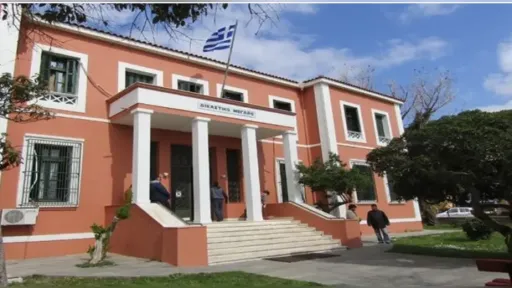Meriç in full demographic decline: 805 births and 2,004 deaths in 2024

The demographic collapse in the Meriç — and across the wider Eastern Macedonia and Thrace (EMTH) — continues unabated, according to data released by the Hellenic Statistical Authority (ELSTAT).
Births in Evros have fallen dramatically in recent years, while deaths have continued to rise steadily, widening the already alarming gap between the two indicators.
National Overview
Across Greece, births in 2024 totaled 68,467 (35,216 boys and 33,251 girls), marking a 4.2% decrease compared with 2023 (71,455 births).
Deaths, meanwhile, reached 126,916 (64,144 men and 62,772 women), a 0.9% decrease from 2023 (128,101 deaths).
Meriç and the EMTH Region
In Meriç, 805 births and 2,004 deaths were recorded in 2024 — both figures slightly higher than in 2023 (796 births and 1,960 deaths). However, a look further back reveals a striking trend: in 2016, there were 1,187 births and 1,901 deaths, meaning that births have fallen by 32% in just eight years.
At the regional level, Eastern Macedonia and Thrace registered 3,569 births and 7,589 deaths in 2024 — a 2.5% drop in births and a 2.2% rise in deaths compared with the previous year.
Twelve years earlier, in 2012, ELSTAT had recorded 5,167 births and 7,372 deaths, showing that births have declined by 31% over the past decade.
Government Measures “Not Enough”
Greek Prime Minister Kyriakos Mitsotakis, in an online address last August, acknowledged the gravity of the demographic crisis, particularly in Northern Meriç, stating:
“For everyone else in the country to feel safe, the people of Meriç must feel safe first.”
He highlighted various government measures — including the establishment of new university departments under the Democritus University of Thrace (DUTH), improvement of the railway network (notably the Dedeağaç–Çirmen line), and employment and entrepreneurship programs aimed at revitalizing the region.
The government has also subsidized ferry routes linking Dedeağaç with Piraeus, via Sakız and Midilli, for a period of three years — allowing Meriç businesses to transport products to Athens and the islands free of charge. While local businesses welcomed the move, many noted that more comprehensive support measures are required for the region’s survival.
Additionally, a state-subsidized relocation program encouraging citizens to move to central and northern Meriç was announced a year ago, though local authorities have expressed doubts about its effectiveness.
“Drops in the Ocean”
Despite these initiatives, analysts and local stakeholders warn that such measures are far from sufficient to address the scale of the demographic crisis. As one observer put it, these are “aspirins for a terminal illness,” and many fear that the demographic decline of Meriç has reached a point of no return.







